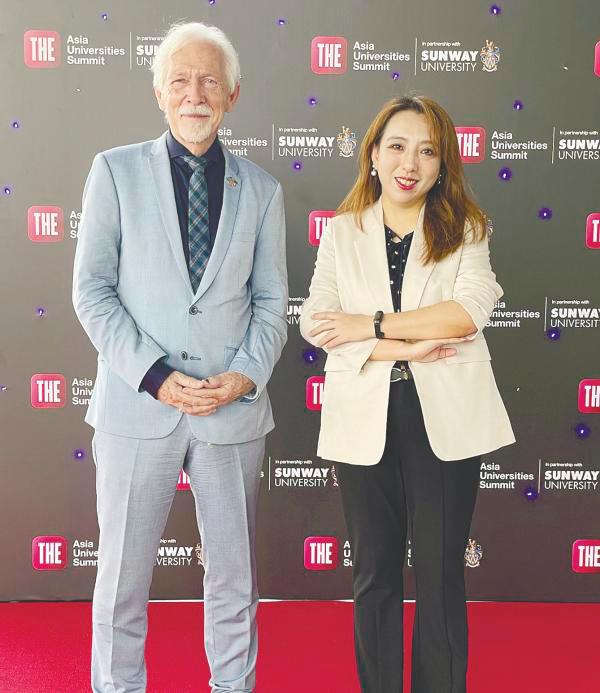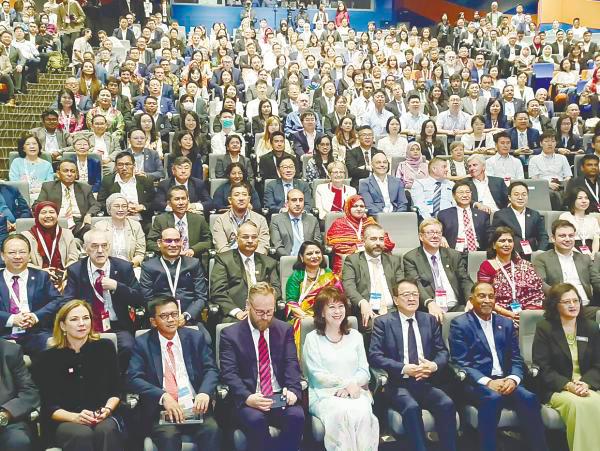BANDAR SUNWAY: Sunway University took the lead for transnational education as it hosted the Times Higher Education (THE) Asia Universities Summit 2024, for the first time in Malaysia, themed, “Bridging Frontiers: Changing the Landscape of Education in Asia.”
The event, with over 600 participants from 40 countries, and 160 universities and colleges from all over Asia, including Singapore, Cambodia, Thailand and Indonesia, and also the US, Europe and Netherlands, was according to President of Sunway University, Professor Sibrandes Poppema, the most successful, based on the number of delegates and the various countries that participated.
Professor Chai Lay Ching, the Pro Vice-Chancellor (Education), who is also the organizing Chairperson of THE Asia Universities Summit said, “It took months to organize, and we started in November last year but the initial number of delegates started to snowball and we had to open more places for delegates as demand grew.”
“As the Ministry of Higher Education wants to transform Malaysia into an education hub, this Summit is one opportunity to do that. Sunway University also wants to make a name for itself, and the theme centres around crossing borders, focusing on transnational education and its importance today,” said Prof Sibrandes.
Malaysian students do travel overseas for study in foreign universities but today for example, they have choices. They can choose to study for a foreign degree locally, at one quarter the price.
Sunway University currently has a partnership with Lancaster University in the UK. Since 2006, with over 6,000 students, it provides a wonderful transnational experience and when students graduate, they receive two degrees, one from Sunway University and another one from Lancaster University.”
Students gain tremendously from the lower cost of living, which is cheaper in Malaysia and the cost of travelling as they remain in their home countries,” added Prof Sibrandes.
According to him, the model for transnational education varies from one university to another, for example, there are universities with branch campuses here in Malaysia, and that comes under transnational education, but upon graduation, the students graduate with a single degree from the branch university.
“Sunway University has a new partnership with Arizona State University (ASU) whereby students who enroll for the programme, study three years at Sunway University and for their fourth year, they transfer to ASU and complete their final year at Phoenix, Arizona, where ASU is located.
Again, students graduate with two degrees, one from ASU and the other from Sunway. The other advantage, upon graduation, the student can apply through the optical practical experience (OPE) to work in the US for a period of three years and secure a permanent job.”
The whole idea of organizing this Summit was to provide a platform for universities across Asia, to discuss the various models of transnational education and thus come up with best practices that they could take home with them.
“Thus, transnational education is to enable people to secure a quality education for an affordable price, thus reshaping the boundaries of academic excellence, allowing students in Asia to experience education at its best,” added Prof Sibrandes.
The keynote address at the Summit, “The trends and drivers of transnational education in Asia”, was delivered by Jazreel Goh, the Country Director (Malaysia) at the British Council and moderated by Professor Dato’ Elizabeth Lee, the Group CEO for Sunway Education.










